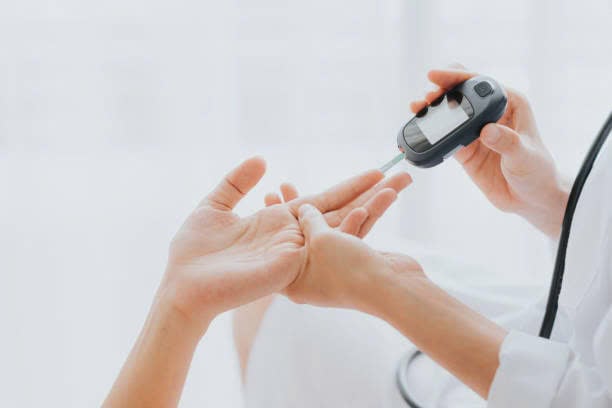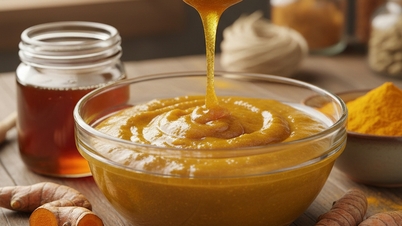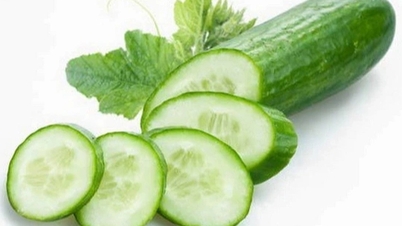Diabetes, characterized by high blood sugar levels, if left untreated, can gradually lead to serious consequences such as heart disease, kidney disease, peripheral neuropathy and vision loss.
High blood sugar can be caused by a number of things, including diabetes, missing insulin doses, or taking certain medications. Hyperglycemia can also be caused by eating too much or the wrong foods, not taking diabetes medications properly, not exercising, and stress.

Some studies show that apple cider vinegar may help lower blood sugar.
According to Ms. Lindsey Wohlford, nutritionist, MD Anderson Cancer Center, University of Texas (USA), many studies show that apple cider vinegar can help lower blood sugar.
Several studies have found that daily apple cider vinegar consumption may help people with type 2 diabetes reduce fasting blood sugar and HbA1C levels.
A 2021 meta-analysis, published in the biomedical journal BMC Complementary Medicine and Therapies , found that consuming apple cider vinegar reduced fasting blood sugar levels by about 8 mg/dl in people with type 2 diabetes.
A small study published in the 2023 Frontiers in Clinical Diabetes and Healthcare research journal found that people with diabetes who took 2 tablespoons (about 30 ml) of apple cider vinegar every day for 8 weeks while following a healthy diet saw their HbA1C drop from 9.21% to 7.79%. They also reduced their bad cholesterol and total cholesterol levels more than people who just followed a healthy diet, according to Heart.org.
A 2021 meta-analysis also found that taking 1 tablespoon (15 ml) of apple cider vinegar daily for over 8 weeks reduced total cholesterol, especially in people with diabetes.

To control blood sugar and cholesterol, mix 1.5 tablespoons of apple cider vinegar in a 240 ml glass of water and drink after meals.
The Best Way to Consume Apple Cider Vinegar
There's no harm in adding a small amount of apple cider vinegar to your diet, says Wohlford.
WebMD medical website suggests: To control blood sugar and cholesterol, mix 1.5 tablespoons of apple cider vinegar into a 240 ml glass of water and drink after meals.
Wohlford recommends diluting it with water and using a straw to minimize damage to the esophagus and tooth enamel.
It is best added to salad dressings to eat vegetables with full fiber and nutrients along with apple cider vinegar containing probiotics, antibacterial acetic acid, polyphenol antioxidants and B vitamins. But for weight loss, drinking apple cider vinegar after meals is better.
Caution: People with low potassium or kidney disease should be cautious when using apple cider vinegar. Vinegar can also interact with some medications. It's best to consult your doctor before use, according to WebMD .
Source: https://thanhnien.vn/cach-dung-giam-tao-tot-voi-nguoi-benh-tieu-duong-185241115234718661.htm












































































































Comment (0)